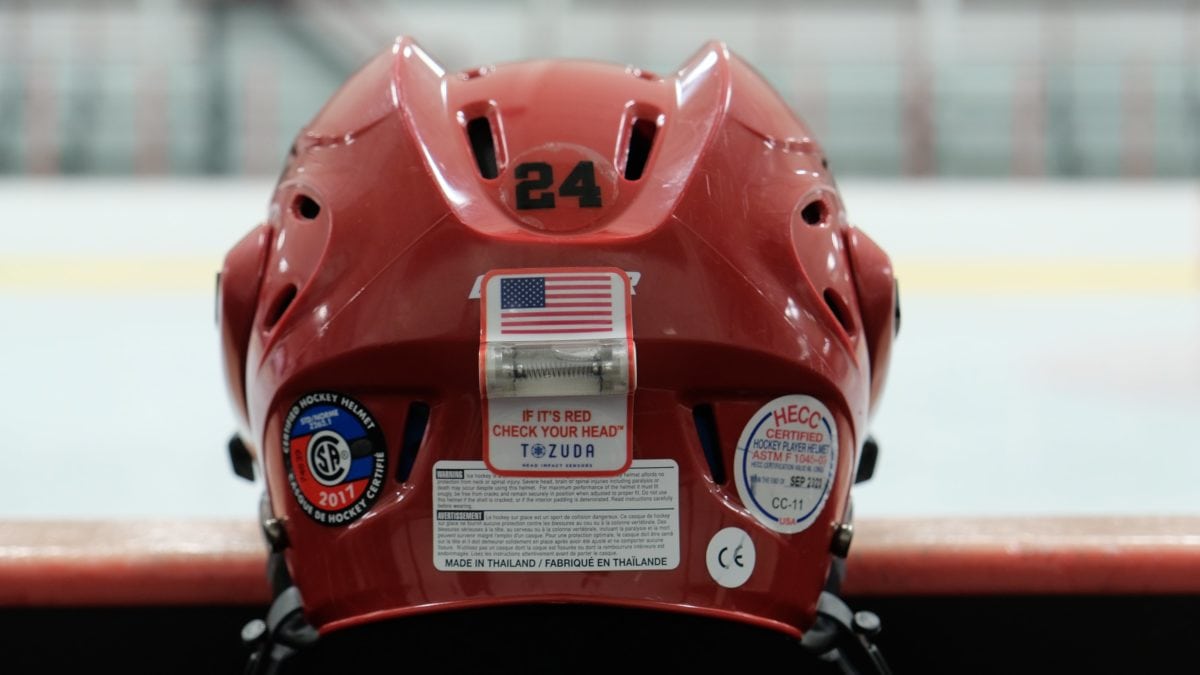A $30,000 Kickstarter campaign will let NextFab-based Tozuda fund the production run of its helmet sensor, a cylinder-shaped add-on that turns red when an impact was hard enough to cause a concussion.
On Tuesday, the company went live with the campaign, which has the dual purpose of helping finance the development of its sensor and help bring awareness to the issue of head injuries in sports and other physical activities.
“Our goal is to bring visibility to an invisible injury,” said founder and CEO Jessie Garcia. “We wanted to build a tool to give people more information about their activity without getting in the way of their game, work, commute or service. We make safety accessible in a way that won’t interfere with what you do, but will alert you when you should stop activity and take action.”
See the campaignThe sensor uses mechanical technology to detect when a linear or rotational impact is potentially concussive. If the sensor turns red, other players and coaches can then alert players an direct them to get a quick neurological check.
For $25, backers will receive a Tozuda helmet sensor, which is due to ship in September 2018. Professional teams can get the sensors in 100-count bulk orders for $3,000. In keeping with crowdfunding’s tradition of out-of-the-box perks for large donations, backers who pledge $5,000 or more get access to a “smash day” that entails, you guessed it, smashing:
“At Tozuda, we have state of the art equipment that we can break things with for our testing,” the campaign reads. “Or what we like to say, SMASH! We will smash a variety of items such as fruit, vegetables, old electronics, or whatever your heart desires. Did we mention we will record everything in high speed?!”
(Related: Philly’s largest crowdfunding campaign — for a sleek, connected air conditioner — starts shipping its units next Summer.)
Tozuda, which received a $10,000 grant from Ben Franklin Technology Partners, employs a team of eight out of NextFab’s Washington Avenue location in South Philly. Earlier this year, Garcia joined Village Capital’s Pathways program, which gives companies with diverse founders access to mentorship, no-interest loans and grant funding.







